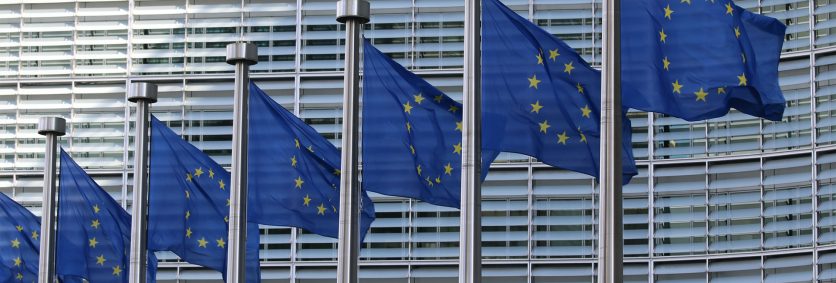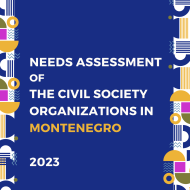INSTRUCTIONS: The EUD is planning on launching at the end of the year or beginning of 2021 two Calls for Proposals, one under the European Instrument for Democracy and Human Rights (EIDHR) and another other the Civil Society Facility (CSF). Due to impossibility to organise the consultation meetings with CSOs in person due to COVID-19, we would like to ask you to provide your feedback by email to: EUpozivi.konsultacije@gmail.com until December 3rd 2020 to the topics mentioned below and propose new topics and target groups that should constitute a part of these two Calls. Please clearly state the name and contact email of the organization as well as which call the comment refers to.
NOTE: You can send your feedback in Montenegrin or English.
- EIDHR 2020 Call for Proposals
The European Instrument for Democracy and Human Rights (EIDHR) was established by Regulation (EU) No.235/2014 adopted by the European Parliament and the Council on 11 March 2014 for the period 2014-2020, establishing a financing instrument for democracy and human rights worldwide through support to civil society initiatives.
In the context of the pre-accession process, the focus of the EIDHR is on the role of the CSOs with an emphasis on areas linked to the Copenhagen political criteria. By doing so, EIDHR complements support brought under other instruments. This search for complementarity is fully in line with the Council Conclusions on Democracy Support Agenda for Action.
The outbreak of the COVID-19 pandemic of the first quarter of 2020 will have dramatic and long-lasting consequences on the economic and social spheres. There are risks that human rights are undermined and the crisis may aggravate the marginalisation of the most vulnerable groups already struggling to claim their rights in the national development process.
In order to address these challenges, the following types of action are proposed under this Call and three major priorities:
- Human Rights Defenders:
- support, protection and defence of human rights defenders;
- actions against torture and other cruel, inhumane or degrading treatment or punishment;
- Promotion of Human Rights:
- support and strengthening of national and international framework for the protection of human rights; concerted civil society monitoring of national and international commitments;
- Strengthening the role of civil society in promoting human rights and good governance in Montenegro
- access to justice and the rule of law;
- support to gender equality (women’s rights, women in decision-making, economic empowerment of women, fight against gender-based violence, etc.);
- protection of the social, economic and cultural rights, especially for groups particularly vulnerable to discrimination and affected by economic and social consequences of the COVID-19 pandemic and similar emergency situations, including but not limited to the elderly, women, children, LGBTI, people in unregistered employment, persons with disabilities, Roma, migrants, refugees and the rights of persons belonging to minorities.
- Promotion of the development of a democratic political culture:
- promotion of freedom of association;
- support for civil society organisations’ activities preparing the ground for elections (e.g. civic and voter education, dialogue and training for political actors);
- support to civil society organisations’ (CSO) actions strengthening democratic reform and dialogue (with the Parliament and other relevant actors)
2) Civil Society Facility (CSF) 2020
The Civil Society Facility (CSF) was established in 2008 to support the development of civil society financially. It includes both national and multi-beneficiary initiatives which are programmed in a coordinated manner to achieve shared outcomes.
EU support to Civil Society Organisations (CSOs) under the Civil Society Facility (CSF) aims to build stronger democracies, improve accountability systems and ultimately achieve better policy and economic and social development
The CSF 2020 programme will be implemented through action grants and sub-granting to CSOs, following the launch of Call for proposals in 2021. The main focus will be on building the capacity of CSOs to be professional, credible, effective and accountable independent actors that can contribute to support and on contributing to the establishment of innovative approaches to contribute to the recovery of the post-COVID 19 pandemics in Montenegro. This will be achieved through the development of innovative approaches to respond to the needs of the most disadvantage.
Support to civil society organisations (CSOs) will focus on:
- promoting active citizenship by engaging in public policy processes;
- strengthening service delivery to most disadvantage population
- support grassroots organizations and community-initiatives to create self-employment and resilient actions; (iv) promoting social entrepreneurship initiatives;
- reinforcing CSOs contribution to policy and watchdog initiatives;
- strengthening governance, transparency and evidence based work of civil society;
- promoting cooperation between media organisations, municipalities and CSOs and
- promote support to volunteering and civic initiatives particularly at local level.
The intervention will also envisage to improve the cooperation and dialogue between the civil society and the government, as well as, reinforce inclusive civic participation in public policy processes and complementary services to the most disadvantage population.




